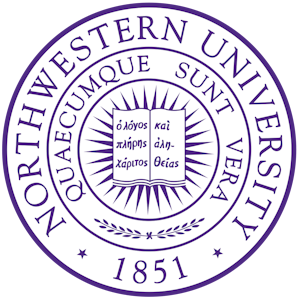Data science leverages the tools of fields like computer science, applied mathematics, information technology, and machine learning to derive insights from big data sets and develop new tools and techniques for doing so.
Why pursue a master’s degree in data science?
Data science master’s candidates typically pursue the degree for one of two reasons: they are either looking to advance along a data science career path they’ve already started or transition into a data science career and land their first data science job.
Career advancement
Those working as a data analyst or entry-level data scientist who already have skills in programming, statistical analysis, and data management might pursue a master’s of science (MS) in data science to advance their skillset and learn new techniques, software, and best practices. Often, doing so can qualify them for promotion at their current company or a more senior role elsewhere, which brings with it higher compensation and more responsibility.
Career transition
Data science master’s programs are also frequently attended by those with bachelor’s degrees looking to change career paths. While some programs require students to have a background in STEM or facility with programming or statistical analysis, many will accept applicants with backgrounds in the social sciences or the humanities, provided they attend remedial courses in mathematics and/or computer science prior to beginning the program or at its beginning.
What kinds of jobs are available to those with master’s degrees in data science?
In addition to data science roles, a master’s in data science prepares you for a variety of related professions. Here’s how they differ.
Data scientist
A data scientist designs, develops, and deploys new methods and techniques for extracting insights from data sets, and then communicates their findings to relevant stakeholders. According to Salary.com’s real-time compensation data, the average annual salary for a data scientist in the US is $140,042.
Data architect
A data architect designs data pipelines to maximize efficiency according to a business’ particular needs, capacities, and resources. According to Salary.com, the average annual salary for a data architect in the US is $124,771.
Data engineer
While the responsibilities of data architects and data engineers can overlap, the primary distinction is that a data architect designs data pipelines while a data engineer develops and deploys them. According to Salary.com, the average annual salary for a data engineer in the US is $112,555.
Data analyst
A data analyst collects, prepares, and analyzes data to generate insights to support business operations. According to Salary.com, the average annual salary for a data analyst in the US is $81,719. Some data analysts go on to work as data scientists, data architects, data engineers, or some other advanced role. To learn more about data analyst positions, see our guides to the best master’s in data analytics program, data analytics online master’s programs, and the typical data analyst career path.
Business or business intelligence analyst
Business analysts and business intelligence analysts both utilize data analysis to serve business goals. While a business analyst focuses on analyzing data to drive decisions related to big-picture initiatives like reducing costs, maximizing revenues, or entering new markets, a business intelligence analyst focuses instead on producing intelligence tools, including reports and dashboards. According to Salary.com, a business analyst in the US earns an average salary of $85,507, while a business analyst earns an average of $80,003. To learn more about business analytics, see our explainer and our business analyst career path guide.
Machine learning engineer
A machine learning engineer designs, develops, ships, and maintains machine learning models. According to Salary.com, a machine learning engineer in the US earns an average of $121,605.
Why pursue a data science master’s degree online?
A master’s in data science can open any of the above careers to you — but why should you consider pursuing this degree online? In our eyes, an online MS in data science offers flexibility, accessibility, and cost savings over its in-person counterpart, with only very manageable downsides. But before we dive into these, let’s zoom out to consider the state of online learning as a whole.
The state of online learning
Twenty years ago, to pursue a master’s degree online was a rarity, not least because technological capabilities were not what they are today. In the two decades since, however, the market share of online programs has expanded. Data provided by Urban Institute show master’s students studying online comprising almost one-third of the total number of master’s students in 2016, up from 21% in 2012 and just 5% in 2000.






